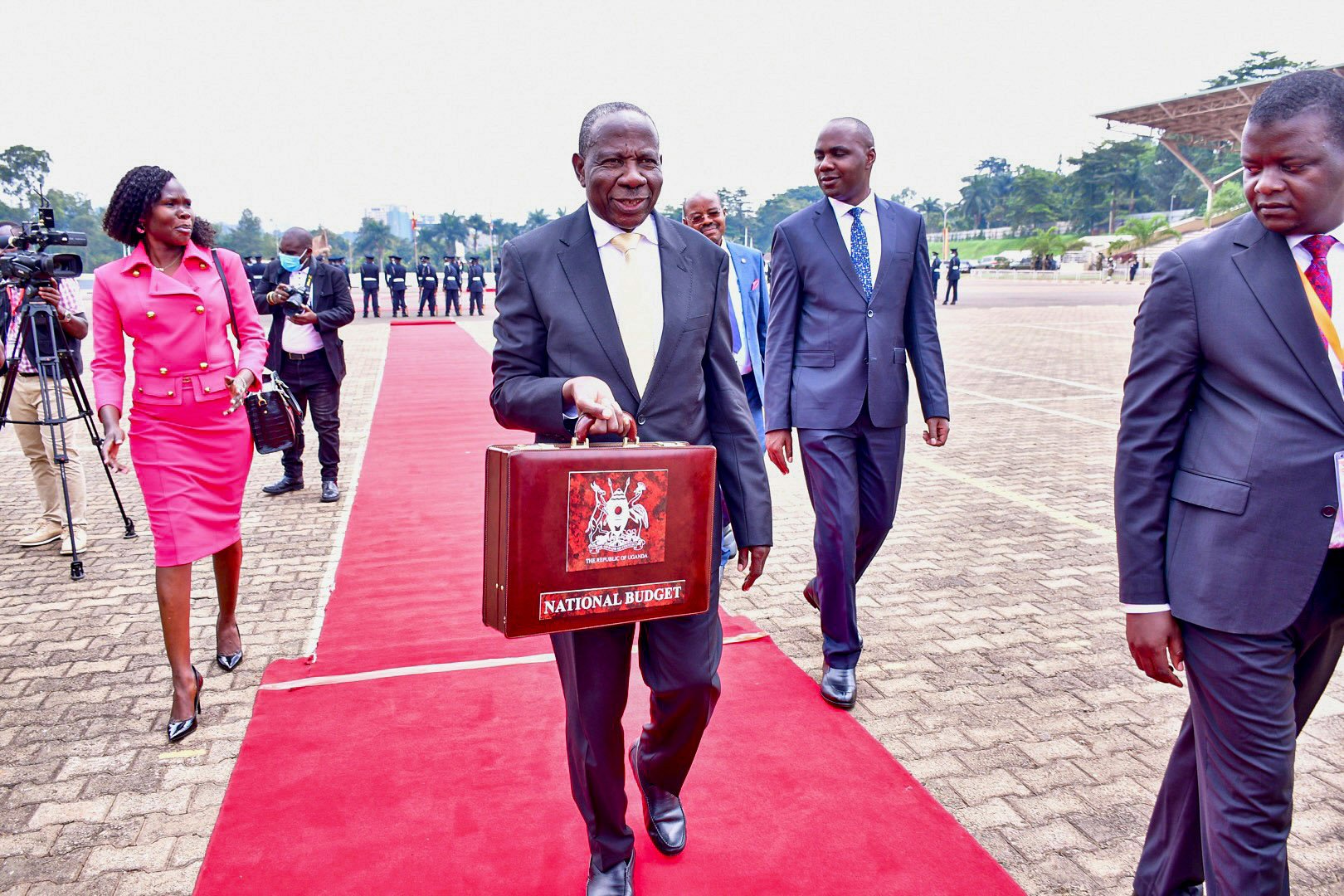How the budget will be financed

People are seen buying groceries at Nakasero Market on June 15, 2023. PHOTO/ ISAAC KASAMANI
What you need to know:
- Addressing the issue of Tax Administration Reforms, Mr Kasaija which the Ministry of Finance believes will strengthen domestic revenue collection by the Uganda Revenue Authority, Mr Kasaija said sustainable revenue collection requires efficiency in the management and administration of the tax system.
Finance Minister Matia Kasaija yesterday outlined government’s financing plans for the Budget in the next fiscal year 2023/24 starting July 1.
While presenting the Shs52.7 trillion national budget at Kololo Ceremonial Grounds, Mr Kasaija said the money will be raised from different sources.
Domestic Revenues amount to Shs29.7 trillion of which Shs27.4 trillion will be tax revenue and Shs2.3 trillion will be Non-Tax revenue.
Non-tax revenue is the recurring income earned by the government from sources other than taxes. This can include payment for driving licenses, passport fees, NGO registration, and registration of land titles, among others.
“Revenue, domestic borrowing amounts to Shs3.2 trillion. Budget support accounts for Shs2.8 trillion. External financing for projects amounts to Shs8.3 trillion; of which Shs3.01 trillion is from grants, and Shs5.3 trillion is from loans.
Addressing the issue of Tax Administration Reforms, Mr Kasaija which the Ministry of Finance believes will strengthen domestic revenue collection by the Uganda Revenue Authority, Mr Kasaija said sustainable revenue collection requires efficiency in the management and administration of the tax system.
“The following measures will be undertaken: Strengthening the Taxpayer Register Expansion Programme framework, which is a collaboration between Uganda Revenue Authority, Uganda Registration Services Bureau, Kampala Capital City Authority and Ministry of Local Government in revenue collection. Mr Kasaija said this framework targets to improve the environment for business formalization and growth; Supporting Local Governments to enhance their revenue effort, including using electronic systems. Undertaking VAT field audits, complex audits and strengthening debt recovery; Leveraging ICT to analyze data and integrating with other Government systems to properly identify taxable transactions and taxpayers;
He further pointed out that tax administration also includes: Improving taxpayer awareness to know their rights and obligations, enhance stakeholder engagements; Continuing tax education and awareness interventions across regions, sectors and gender; Further strengthening of URA staff compliance to procedures, guidelines and standards to curb corruption tendencies and minimize revenue leakages, including staff deployment in areas with highest risk for revenue collection.
Similarly, Mr Kasaija tax administration will include: Utilizing the Alternative Dispute Resolution mechanism by negotiating with taxpayers for settlement of tax disputes out of the court system to avoid delays in resolution of tax disputes; Using ICT systems such as Electronic Fiscal Receipting and Invoicing System (electronic fiscal devices) and the digital tracking system, tax stamps and rental tax solution and telecom sector activities.
Further still, he said continuing the ongoing integrity drive to combat corruption and other vices essential for improving revenue collections; intensifying surveillance of wider coverage of porous borders to curb smuggling through extensive intelligence focused operations supported by use of drones and body cameras.
Mr Kasaija said: “Fiscal Performance in fiscal year 2022/23 total domestic revenue collections amounted to Shs21.7 Trillion by May 2023 and are projected to be Shs25.6 Trillion by the close of the financial year.
“Total domestic revenue is equivalent to 13.9% of GDP and covers 68% of total expenditure, including interest payments on our public debt, but excluding the principal repayment of both external and domestic debt,” he said.
Mr Kasaija said the government will limit non-concessional debt to high impact, high return projects such as Standard-Gauge railway projects, and development of industrial parks, power transmission lines, and water for production and tourism roads; and reduce domestic borrowing.
The other source of financing the national budget will be through appropriation in aid, collected by local governments, which would amount to Shs287b. The Minister also said they are looking at “domestic debt refinancing (new borrowing to pay maturing debt) will amount to Shs8.4 trillion and other financing Shs229.0 billion”.




